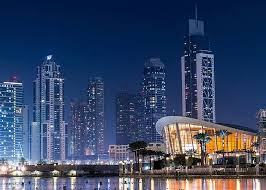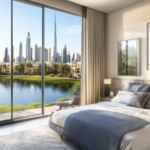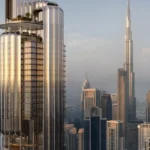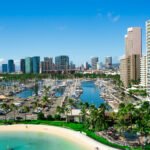Now Reading: Dubai: 7 Inspiring Effects of Plastic Ban in 2025
-
01
Dubai: 7 Inspiring Effects of Plastic Ban in 2025
Dubai: 7 Inspiring Effects of Plastic Ban in 2025
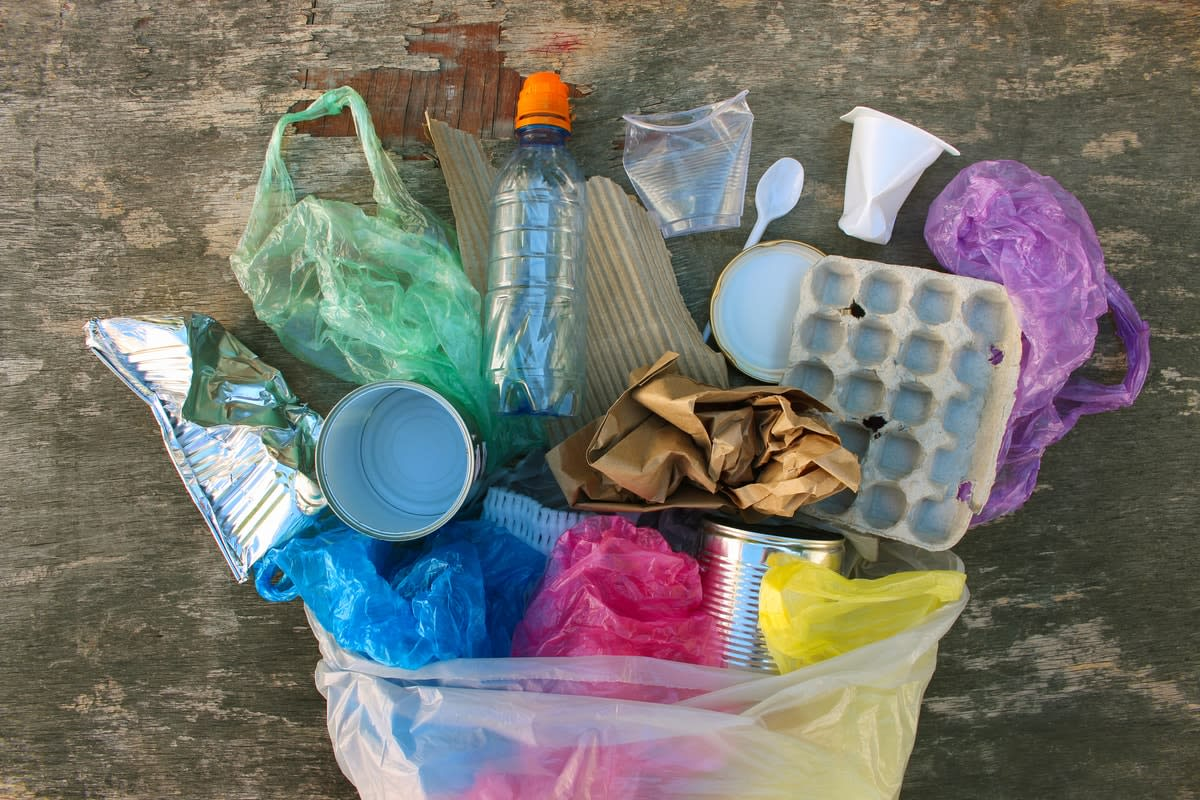
Table of Contents
Plastic Ban: Dubai’s real estate market, a global powerhouse with 6-8% rental yields and no capital gains tax, is poised for transformation in 2025 despite a projected 15% price decline per Fitch Ratings. The comprehensive ban on single-use plastics, effective January 1, 2025, under Executive Council Resolution No. (124) of 2023, prohibits items like Styrofoam containers, plastic straws, and stirrers, following a June 2024 ban on single-use bags.
This initiative, led by Sheikh Hamdan bin Mohammed bin Rashid Al Maktoum, aligns with the Dubai 2040 Urban Master Plan and the UAE’s Net Zero 2050 vision, impacting the AED 761 billion real estate sector in 2024. This guide, written in clear, SEO-friendly language with an engaging tone, outlines seven inspiring effects of the 2025 plastic ban on Dubai’s real estate market, tailored for U.S. investors, with data-driven insights, legal considerations, and risk analysis.
7 Inspiring Effects of Plastic Ban in 2025

1. Surge in Demand for Sustainable Properties
The plastic ban drives demand for eco-friendly properties with LEED certification and sustainable materials, particularly in communities like Dubai Sustainable City and Dubai Hills Estate, where rentals rose 5-7% in 2024, per Knight Frank.
- Effect: Properties with green features (e.g., biodegradable packaging for amenities) command 5-10% rental premiums, boosting 6-8% yields.
- Investor Benefit: U.S. investors can target LEED-certified apartments in Dubai Hills (from AED 1.2 million) for 7-8% yields, appealing to eco-conscious tenants.
- Example: A AED 1.5 million Dubai Hills unit rents for AED 105,000 vs. AED 97,500 for non-certified, adding USD 2,042 annually.
2. Enhanced Appeal of Eco-Conscious Developments
Developers like Emaar and Nakheel integrate plastic-free practices (e.g., reusable packaging for property handovers), aligning with the ban and boosting project appeal by 10%, per Betterhomes.
- Effect: Off-plan sales in eco-focused projects like Azizi Venice (from AED 800,000) increase by 15%, supporting 10-15% appreciation by 2028.
- Investor Benefit: U.S. investors gain from early investments in sustainable off-plan units, leveraging 50% payment plans.
- Example: A AED 1 million Azizi Venice unit appreciates to AED 1.15 million by 2028, yielding USD 40,838 profit.
3. Reduced Operating Costs for Green Buildings
The ban encourages property managers to adopt plastic-free alternatives (e.g., paper-based maintenance supplies), cutting waste disposal costs by 5-10%, per Dubai Municipality.
- Effect: Lower service charges (AED 12-20/sq. ft. vs. AED 15-25/sq. ft.) in green buildings like DMCC towers enhance net yields by 0.3-0.5%.
- Investor Benefit: U.S. investors in DMCC commercial properties (from AED 1 million) save AED 3,000-5,000 annually, boosting ROI.
- Example: A 1,000 sq. ft. DMCC office saves AED 5,000 in service charges, adding USD 1,361 to USD 19,609 rental income.
4. Strengthened Investor Confidence in Dubai’s Vision
The plastic ban reinforces Dubai’s commitment to sustainability, attracting 12% more foreign investment (AED 376 billion in 2024), per DLD, despite a 15% price correction.
- Effect: Confidence in Dubai’s long-term growth sustains 6-10% yields in prime areas like Palm Jumeirah, per DAMAC Properties.
- Investor Benefit: U.S. investors benefit from stable 7-9% price growth in luxury properties, eligible for Golden Visas at AED 2 million.
- Example: A AED 2.5 million Palm Jumeirah villa appreciates to AED 2.675 million in 2025, gaining USD 47,657.
5. Increased Value of Short-Term Rental Properties
Airbnb hosts adopting eco-friendly practices (e.g., biodegradable toiletries) align with the ban, boosting bookings by 10% in Dubai Marina, where occupancy rates hit 85%, per ValuStrat.
- Effect: Short-term rental yields rise to 8-10%, with daily rates of AED 650-900 for apartments.
- Investor Benefit: U.S. investors in Dubai Marina units (from AED 1.2 million) see higher occupancy and 0.5% yield increases.
- Example: A AED 1.8 million Dubai Marina unit earns AED 180,000 annually, up AED 18,000 with eco-upgrades, adding USD 4,904.
6. Support for Infrastructure and Urban Planning
The ban, part of a circular economy push, funds sustainable infrastructure via fines (AED 200-2,000 for violations), supporting 73,000 new homes in 2025, per Times of India.
- Effect: Enhanced infrastructure in Dubai South drives 6-7% yields and 10-15% appreciation by 2028, per Emaar Properties.
- Investor Benefit: U.S. investors in off-plan Dubai South units (from AED 800,000) capitalize on population growth to 5.6 million by 2040.
- Example: A AED 900,000 Dubai South unit yields AED 63,000 annually, appreciating to AED 1.035 million by 2028 (USD 36,754 gain).
7. Cultural Shift Toward Sustainability
The ban fosters a sustainability culture, with 30% of buyers prioritizing eco-friendly properties in 2024, per CBRE, enhancing Dubai’s global appeal.
- Effect: Demand for communities like JVC (6-8% yields) rises as eco-conscious expats (3.914 million population) drive 226,000 transactions in 2024.
- Investor Benefit: U.S. investors gain from 5-7% rent increases in JVC, supported by eco-friendly community initiatives.
- Example: A AED 600,000 JVC unit’s rent rises from AED 42,000 to AED 45,000, adding USD 816 to USD 11,431 income.
Legal Considerations for U.S. Expats
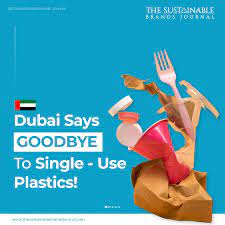
- UAE Tax Framework:
- VAT: 5% on commercial transactions (e.g., property management, brokerage). Residential rentals are exempt. Recoverable for VAT-registered businesses.
- Corporate Tax: 9% on taxable income above AED 375,000, with 0% for Qualifying Free Zone Persons (QFZPs) or Small Business Relief (revenue below AED 3 million). Residential rental income is exempt.
- Compliance: Register for VAT if taxable supplies exceed AED 375,000 by March 31, 2025. File corporate tax returns by September 30, 2025, for 2024. Penalties: AED 10,000 for late registration, AED 50,000 for missing records. Plastic ban violations incur AED 200-2,000 fines.
- U.S. Tax Framework:
- Reporting: Declare worldwide income under FATCA via Forms 8858, 1116, and Schedule E. Income taxed at 10-37%, capital gains at 0-20%.
- Foreign Tax Credit (FTC): Offset U.S. tax with UAE corporate tax paid (not VAT or fines).
- FEIE: Exclude USD 130,000 of earned income if resident in UAE for 330 days.
- Freehold Ownership: U.S. investors can own properties in freehold zones (e.g., Dubai Marina, JVC), registered with DLD.
- Golden Visa: Properties worth AED 2 million qualify for a 10-year visa.
- Transaction Fees: 4% DLD fee (split with seller), 2% agency fee, AED 540-4,200 registration fees.
Risks and Mitigation
- Oversupply: 210,000–250,000 units by 2026 may deepen price declines. Invest in prime areas like Dubai Marina for 8-10% yields.
- Compliance Costs: Plastic ban fines (AED 200-2,000) and VAT errors risk AED 5,000-50,000 penalties. Use advisors
- U.S. Tax Burden: IRS reporting reduces returns. Claim deductions on Schedule E, consulting U.S. tax professionals.
- Adoption Challenges: Businesses slow to adopt eco-alternatives may face supply chain issues. Partner with suppliers for compliant materials.
- Market Volatility: U.S. interest rates (6-7% in 2025) may curb investment. Dubai’s 18.7 million visitors in 2024 sustain rental demand.
Step-by-Step Guide for U.S. Investors
- Research Plastic Ban Impacts: Study Resolution No. (124) and sustainable property trends.
- Target Green Investments: Purchase LEED-certified or off-plan units in Dubai Hills or Dubai South (from AED 800,000) for 6-10% yields.
- Adopt Eco-Practices: For Airbnb properties, use biodegradable supplies to boost bookings, targeting 85% occupancy in Dubai Marina.
- Ensure Compliance: Register for VAT by March 31, 2025, if commercial supplies exceed AED 375,000. File U.S. taxes by April 30, 2025, with FTC.
- Engage Experts: Consult for VAT and ban compliance, avoiding AED 2-200 monthly fines.
- Monitor Infrastructure: Leverage infrastructure growth in Dubai South for 10-15% annual appreciation rates by 2028.
- Track Returns: Aim for 7-10% yields and 10-15% appreciation by 2028, reinvesting savings into eco-friendly properties.
Conclusion
The 2025 single-use plastic ban, effective January 1, reshapes Dubai’s real estate market by driving demand for sustainable properties, enhancing eco-conscious developments, and reducing costs for green buildings. With 6-10% yields and 10-15% appreciation by 2028, U.S. investors can capitalize on Dubai’s sustainability push, despite a 15% price decline forecast. By targeting prime areas like Dubai Marina, adopting eco-practices, and ensuring compliance with UAE and U.S. tax laws, investors can navigate risks like oversupply and fines (AED 200-2,000). watch more
read more: Dubai Real Estate: 15 Impacts of New Sewerage Fee Changes in 2025



